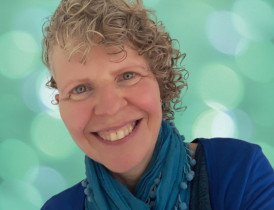Robyn Harris

Isn't it interesting how allowing our horses to say 'No' can bring up so much stuff - both for them and for us!?
Since Dax arrived there have been some changes in his behaviour, as those of you who've been following this blog will know. At first he was like a little lamb, meekly following wherever I took him - except into that weird dark box that hoomans call a 'stable'! This has now turned around where he's quite happy to go in to his stable - after all there's hay and treats in there (herbs or pieces of carrot / celery that I leave on the floor for him to 'forage') - but not so keen to walk on the lead rope.
He also has times when he says a definite 'No' to being touched - this can be challenging when I want to check his feet or apply neem oil to keep the flies off.
Thankfully, though, he never says 'No' to having any scratches and scrapes treated, and will even come and show me when he's got a cut somewhere!
His behaviour can seem unpredictable, in that some days he is quiet, almost subdued, and others he appears 'grumpy' and disconnected. I get glimpses of a softer Dax, a more gentle and relaxed fellow who is open to engaging and exploring with me, and I think these glimpses are becoming more frequent, but it doesn't mean that I don't still see the other sides of him too. As a good friend of mine posted on her Facebook group the other day, all of these responses from Dax are opportunities to question and explore:
This is also raising other questions for me, around my own beliefs and ways of being. As I mentioned in an earlier post, the use of strong discipline and 'dominance' theories doesn't sit comfortably with me. Many people talk about having to be the 'lead horse' but this has never made much sense to me. A horse can see that I am different - I look different and I behave in different ways compared to horses. I don't have the anatomy necessary to speak full 'horse' either - big, mobile ears; large eyes on the side of my head; 4 legs; a tail; etc. I am also a good deal smaller, lighter and less powerful. Also, I can never fully appreciate what it is to see the world from a horse's perspective.
Dominance theories are often based on research done in domestic (artificial) situations and so the behaviours recorded are not always 'natural'. Also we are viewing them through our human filters.
I have learnt that a herd's way of being is more one of co-operation, synchronisation and leading / following, rather than dominance.
I want to learn how to be a good leader, one who leads by example, conscious behaviours and kindness.
From other, personal, work that I have done, I believe in the value of being curious and of listening to our inner, gut feeling, to guide us in finding the best course of action. Of course, this needs to be done very consciously or we could easily think or convince ourselves that what we are doing is 'right' when actually it is just an 'easier' course of action for some reason.
So this is what I am working on in my relationship with Dax. Seeking to find the way that feels right - for both of us. One that allows us both freedom of expression, while still allowing both of us to feel safe. Giving him the space to say 'No' while also showing him that I can say 'No' too. Opening up a dialogue where we can explore those 'No's to see what's behind them, and how we can find ways to say 'Yes' to each other. This isn't always easy. Dax had a hard start in life and doesn't appear to have learnt the subtleties of expression. He seems to go from 'Ok' to 'NO!' in one leap, with no shades in between. Part of this is my ability to 'hear' him too, and to spot his signals, so this is something that I need to learn.
In an earlier post I posed a series of questions:
My responses to these would be:
If any of this has raised questions for you, or you have any comments, I'd love to hear from you. Feel free to comment below or to contact me.
Are you wondering about networking but feeling nervous about it?
Our FREE guide will help you to feel comfortable and confident when networking - even if you're an introvert!
Download your FREE guide now